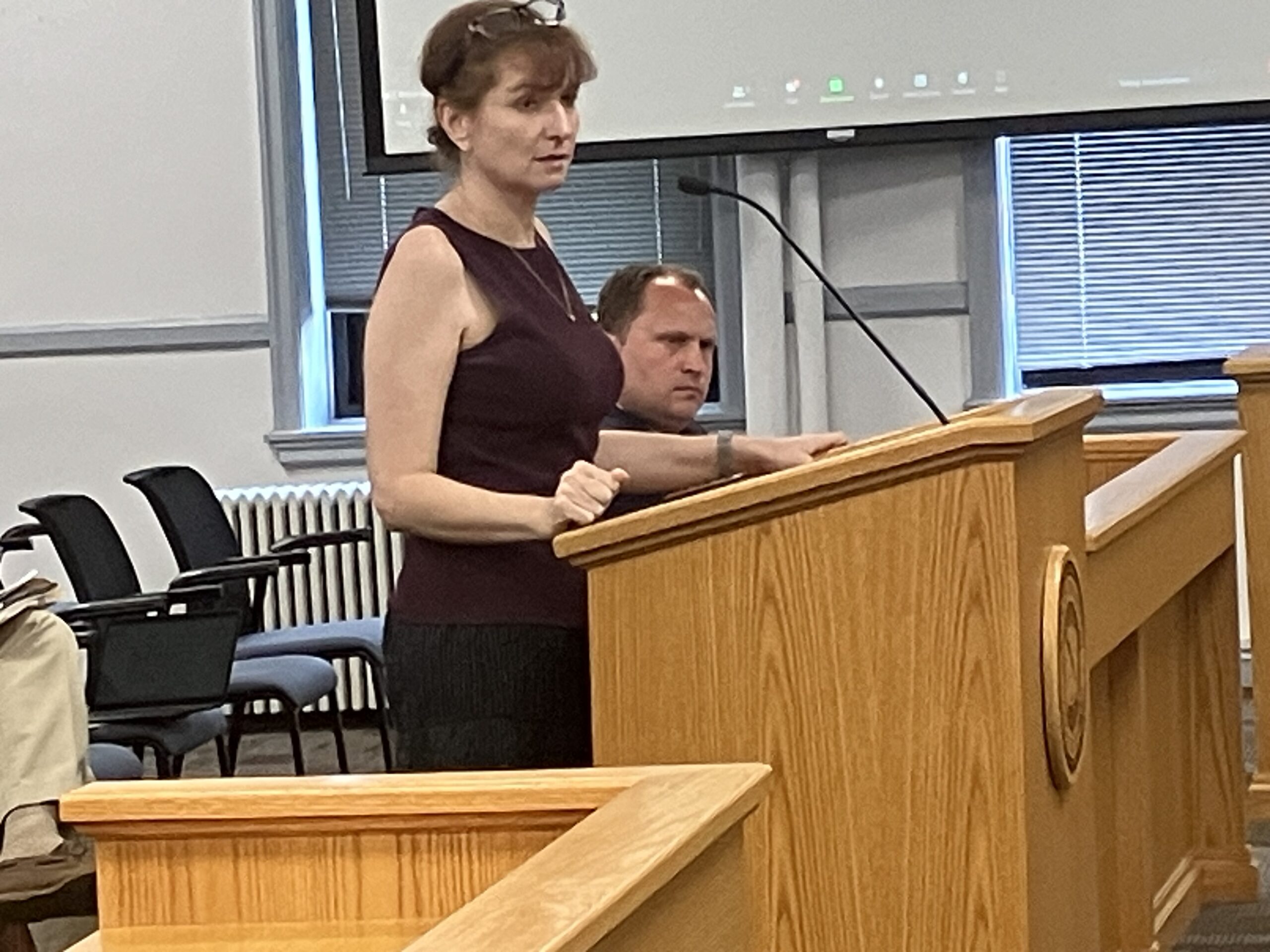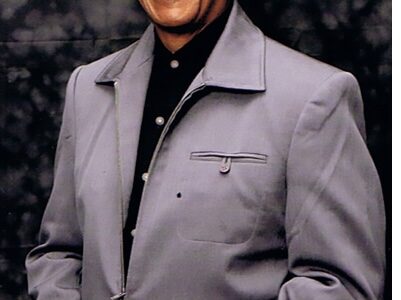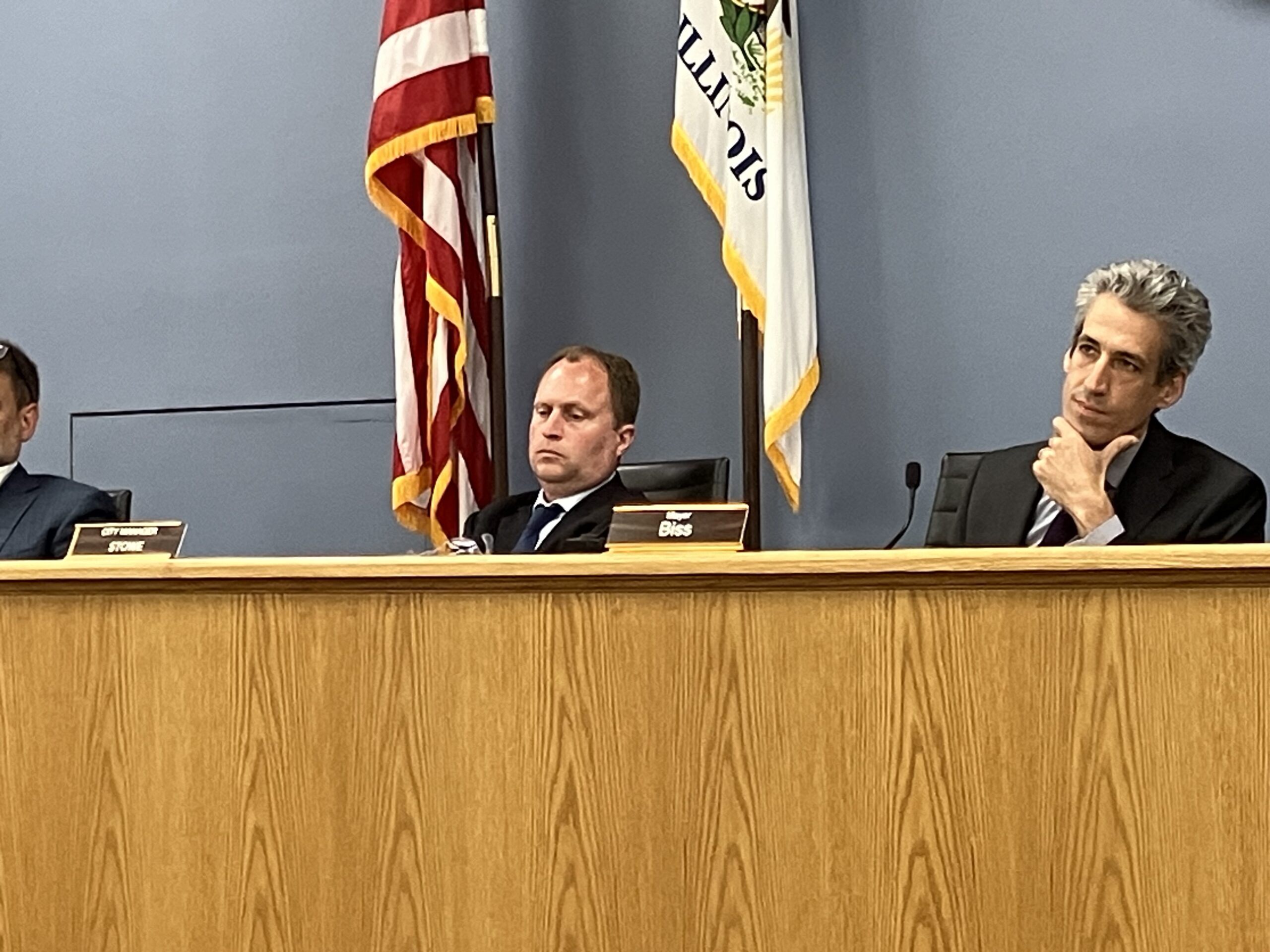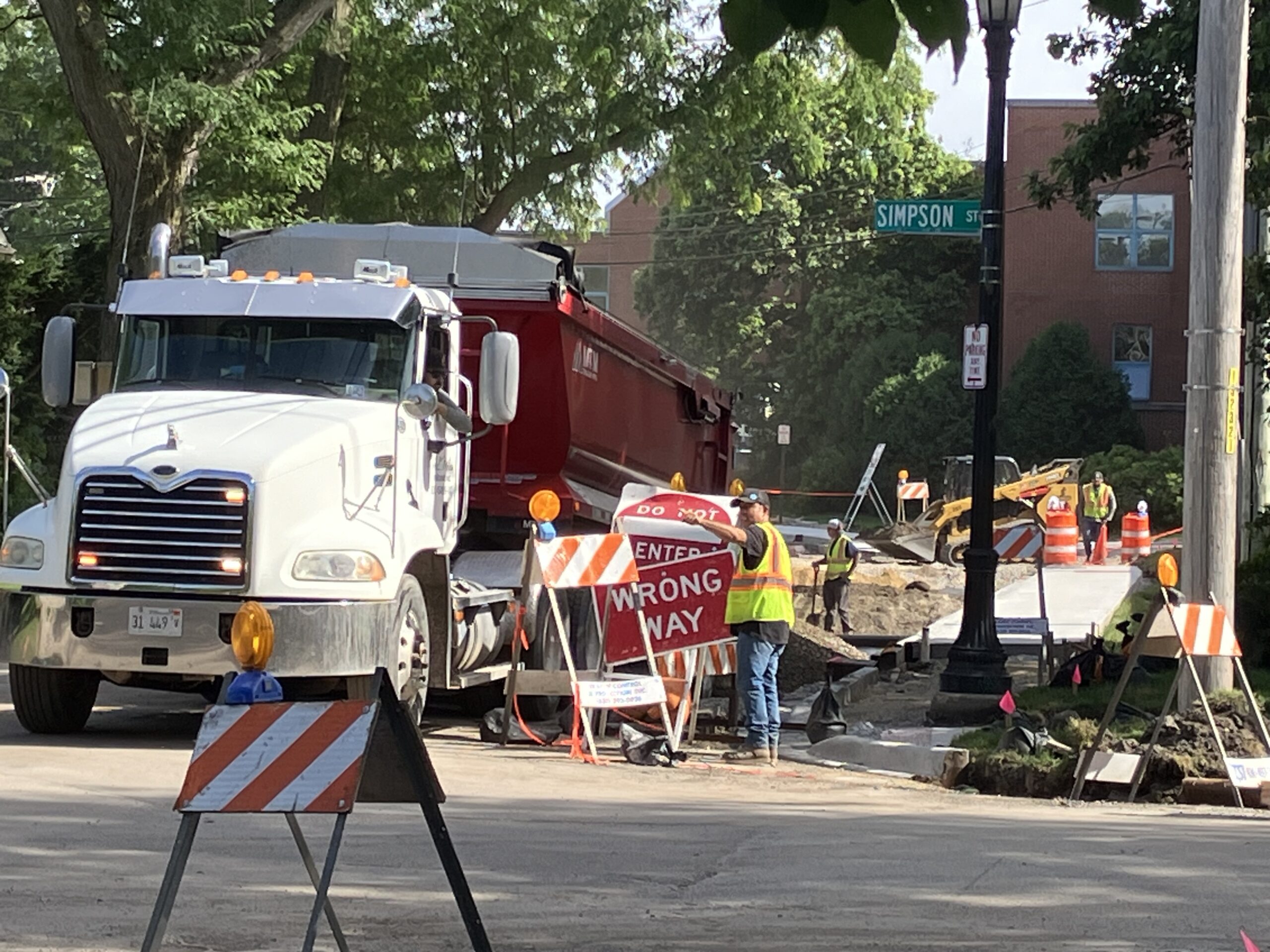By Bob Seidenberg
Members of the city’s Rules Committee recommended an ordinance that would allow candidates running for mayor to use public funds to finance their campaigns.
At their meeting July 17, committee members voted 6-1 in favor of the proposal, moving it to the full City Council for consideration.
An earlier vote, to hold the ordinance in committee for more discussion, failed 4-3.
Ninth Ward Council Member Juan Geracaris worked with Reform for Illinois, a nonpartisan research and advocacy organization to develop the ordinance, titled “Small Donor Matching System for Fair Elections.”
“I think my thought is that elections and money – not a great mix,” said Geracaris, leading off discussion.
The proposed ordinance is built on the premise that the current campaign system discourages otherwise qualified candidates from running for office because they need to raise substantial sums of money to be competitive.
Reform for Illinois previously spearheaded Evanston’s successful drive last year to become the first Illinois community to adopt ranked choice voting.
During the citizen comment portion of the meeting, David Melton, co-chair of Reform for Illinois, noted that small-donor-matching ordinances have been adopted in 14 other states and 25 other municipalities in the United States.
“Currently Illinois does not have any municipality or government that has adopted this,” he told Rules Committee members, “but this is a good proposal to try and counteract the influence of big money in elections.”
Reid: Legislation could result in ‘unintended consequences’
“The Small Donor Matching system sets out a maximum allocation for the fund of one-fortieth of a percent of the Evanston annual budget or $68,750, whichever is greater,” according to the ordinance.
The cost would amount to less than $1 per person, per year, Geracaris noted.
Candidates who qualify would be eligible to tap the fund to receive matching funds equal to nine times the amount they receive during an election cycle, not to exceed $81,000 in any one election cycle.
To be eligible to participate, candidates would have to file a written application to the Evanston city clerk during the qualifying period for the election, which is to start right after the previous election for that office
The candidate’s campaign committee would have to file all campaign finance reports required by law during the applicable election cycle.
The requirements also entail the participating candidate signing a participating candidate contract and complying with requirements of the ordinance, including agreeing to participate in public forums or debates.
The ordinance also sets a $150 limit as a maximum amount a candidate can receive from any one source and establishes numerous disclosure requirements pertaining to the use of the funds. (Currently, according to election code, a candidate political committee may not accept contributions with an aggregate value over $5,000 if from an individual.)
At the meeting, Geracaris said he recognized that some committee members had amendments they wanted to add to the original proposal, “but I feel like you are in favor of this as a general idea.”
He said adoption is important if the city is going to be able to establish the fund this year.
“We should move this forward to the council and we can work out the small details going forward,” he suggested.
Eighth Ward Council Member Devon Reid said that he agreed with the general principle – “that it is extremely important that we get big money out of our local politics and make sure that our democracy is accessible to as many folks as possible.”
At the same time, he raised reservations about the ordinance having “unintended consequences that I fear is that we will increase the power – the potential power to contribute to campaigns, folks who already are likely to vote and contribute, instead of having someone having to donate as much as they would have in the past.”
He said he supported a voucher program, in which residents would be issued vouchers to donate to the candidate of their choice.
Short of that, he suggested officials consider limiting the matching contribution eligibility to donors who are in some lower-income bracket. One, he said, that approach will save some money in the funds the city will have to deposit in the matching funds account. Two, he said, “It will encourage candidates to reach out to those lower-propensity voters and get them to vote and turn out in municipal election.”
Studies point to effectiveness elsewhere
Mayor Daniel Biss, who sits on the Rules Committee and is a former state legislator, noted that the small donor approach has been in operation in a number of places, some quite recently, a few for a long time.
He asked representatives from Reform for Illinois, in the audience at the meeting, if they wished to add more from their findings.
Alisa Kaplan, an Evanston resident active locally and executive director of the organization, told Rules Committee members that “there’s actually significant research on how small-donor matching programs increase donations from low-propensity voters and low-propensity donors, much more than there is for voucher programs because voucher programs have only been in place since 2017.”
She said a small-donor program in place in New York City since the 1980s has been studied extensively. The Brennan Center for Justice, which studies such issues in depth, found small-donor matching programs increased the amount of donations in minority areas by up to 24 times, Kaplan said.
She cited research from more recent programs in Washington, D.C., and Portland, Ore., too. In Portland, in a district that encompassed the city’s most diverse makeup, the size of donations shrunk by 15 times, she said, with donor matching program requirements in place.
Reid noted that New York City and Washington, D.C., for instance, have much higher minority populations and much higher rates of poverty than Evanston. “So I think in this case, assuming that this will have that impact here, I can’t say for certain,” he said.
He said he still favored limiting eligibility for matching funds for some income brackets.
“I don’t think we should be matching funds for folks who can truly afford to give a contribution,” he said.
He proposed limiting the matching program to donors who are at 80% of the Area Median Income (currently around $65,781 in the Chicago area) or lower.
Responding, Melton said that the courts have opposed generally differentiating between rich donors and poor donors. In U.S. Supreme Court cases since 2007, he noted, the court has been hostile to campaign financing reform in general.
Qualifying period should be shortened: Nieuwsma
Council Member Jonathan Nieuwsma, (4th Ward) also spoke in support of the ordinance’s aims.
“I think making democracy more accessible to voters, making democracy more accessible to potential candidates is in the best interest of the city; it’s in the best interest of our country,” he said. “So I like the direction this is going.”
He said he did have a number of questions, though, “and I think that things need to be cleaned up as well.” One of these, he said, dealt with the qualifying period during which funds could be sought. The ordinance proposed that the period run from the day of the most recent election for the specific office to 30 days prior to the election – roughly four years.
“For an incumbent mayor to get qualifying donations, a challenger would not normally materialize until the year before the election, six months,” Nieuwsma said. “There’s no hard number on that, but I would be in favor of making the qualifying period something less, I’ll suggest, at least for further discussion.”
His other concerns had to do with the role outlined for Evanston’s city clerk in the ordinance. The clerk is to oversee the rules and regulations concerning the form in which contributions and expenditures are to be reported.
The clerk’s other responsibilities include the power to investigate all matters relating to proper administration of the ordinance.
“I think it made sense for the clerk to handle the paperwork, to handle the applications,” Nieuwsma said. “But to ask the clerk to serve in a quasi-judicial role if there is a dispute is not something I think the clerk’s office is set up to do.”
Nieuwsma also raised a question about a provision in the proposed ordinance that suggested that anyone doing business with the city valued at more than $5,000 should be prohibited from donating.
“If we were to do that, and I certainly understand the intent,” he said. “But I think the onus has to be on the donor to self-certify,” noting the thousands of vendors the city deals with.
Similarly, a prohibition against anyone looking to do a zoning variance with the city ought to be looked at.
”That would preclude me from participating,” he said. “I applied for a curb cut in 2010 so my pregnant wife wouldn’t have to get out of the car on the street pregnant with twins. By the way, it was denied. It was denied.
“So we would need to clean up this language,” he said, “and make it clear that what we’re trying to do is prohibit undue fiscal influence from developers who are seeking to buy influence.”
Reid also suggested a change he would like to see. With “equity in mind,” he proposed that the matching funds program be extended beyond mayor, to include candidates running for City Council.
His proposal was more focused beyond that, specifying the program should be made available to wards with the highest minority rates. In the city, that would be the Second, Fifth and the Eighth, where he is the council member.
“That will help us be intentional about outreach to the wards with the highest rates of poverty,” he said.
The motion failed to get a second, and thus the issue was dropped at that point.
Nieuwsma then moved to table the main ordinance until the next Rules Committee meeting to allow more time.
Reid seconded the motion. “I would encourage us to table this, get it right,” he said. “Make sure that we’re crossing all the t’s and dotting all our i’s.”
Since the next meeting of the Rules Committee isn’t until October. committee members left open the possibility of holding an earlier meeting. The city would have to approve the system before adoption of the budget, usually late in November, for the program to start being funded.
In a 4-3 vote, committee members voted against Nieuwsma’s motion to table.
Voting to table were members Nieuwsma, Reid and Krissie Harris (2nd Ward).
Voting against the tabling motion were Mayor Biss and council members Clare Kelly (1st Ward), Melissa Wynne (3rd Ward) and Geracaris.
The committee then voted 6-1 to recommend approval of the ordinance, moving the issue next to the full City Council, with Reid casting the lone “no” vote.
Council members Eleanor Revelle (7th Ward), Bobby Burns (5th Ward) and Thomas M. Suffredin (6th Ward) were absent.




